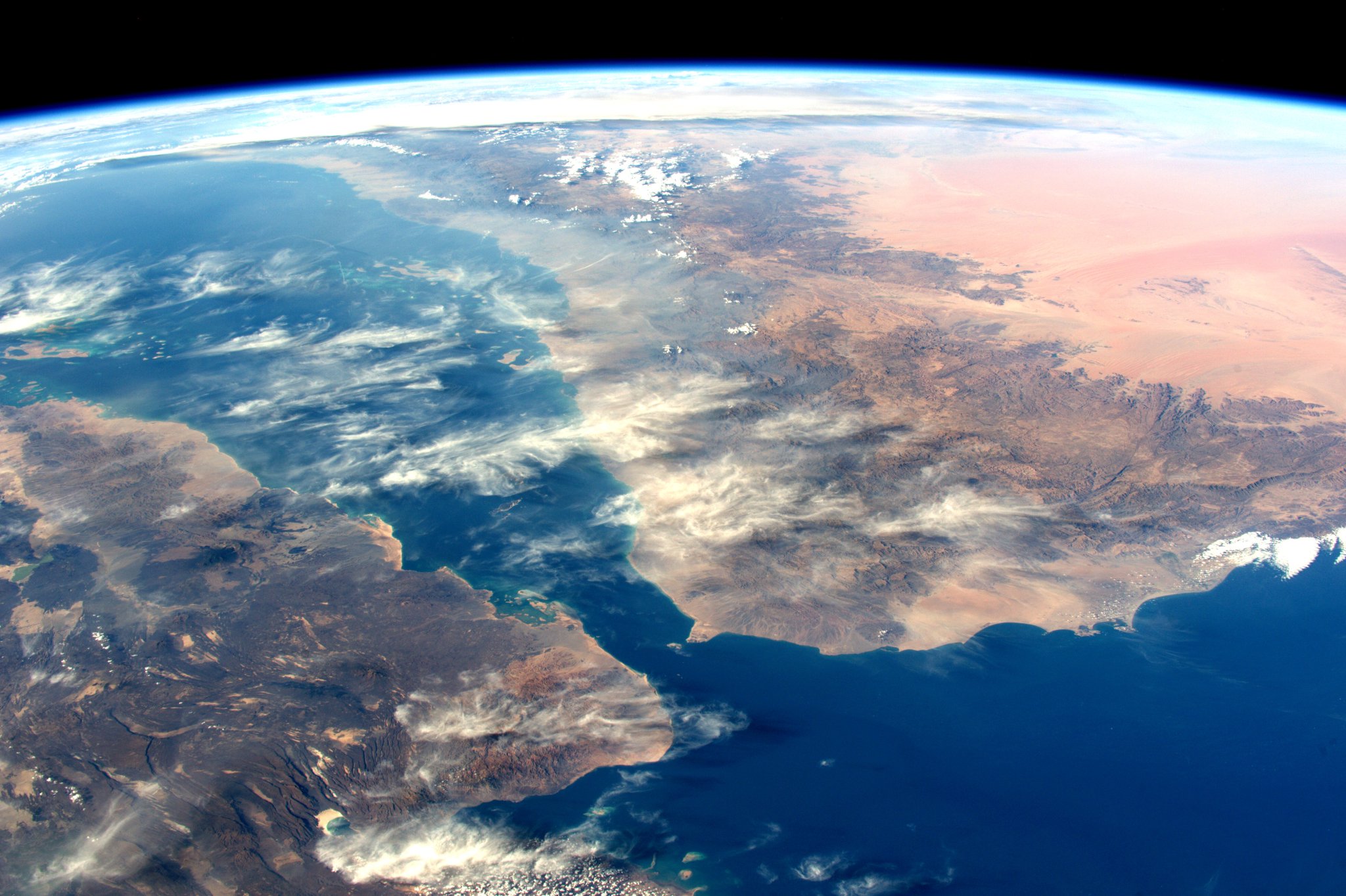[:ja]ISSからトーマス・ペスケット宇宙飛行士が撮影したアフリカのジブチです。ジブチはアフリカ大陸から紅海に向かって突き出しており、中東とアフリカ大陸が最も接近する場所です。

ジブチは1977年に仏から独立を達成した後、ジブチ住民の大部分が属するイッサ族(ソマリア系)とアファール族(エチオピア系)の対立を背景とする紛争と国民融和に向けての努力が繰り返されてきました。
厳しい自然環境のため国土の大部分で農業は未発達で、主な収入源は、ジブチ鉄道による収入、中継貿易、ジブチ港の港湾施設サービス、仏軍、米軍等の駐留による利益です。
-153mとアフリカで最低地点を誇るアッサル湖の様子はこちら。湖で採れる塩は古代から貴重な資源とされてきました。

参考文献: Thomas Pesquet’s Tweet
ウェブ地球儀で地球俯瞰画像を見る: LiVEARTH
[Earthview Wonders] No.150: Djibouti
Astronaut Thomas Pesquet captured Djibouti of Africa. Djibouti’s land is sticking out to the Red Sea where it faces the Middle East.

After the country won its independence from France in 1977, Djibouti fought for the peace between Issas(Somali) and Afars(Ethiopean).
Because of its barren land, the country suffers from undeveloped agriculture. Djibouti’s income relies on railroad, intermediate trades, sea port services and French and U.S. army’s stationing.
Lake Assal has the lowest land point of -153m in the African Continent and its scenery is as follows. Salt acquired from the lake has been an importan resource from the ancient times.

Reference: Thomas Pesquet’s Tweet
See earthview photo gallery with web-globe: LiVEARTH[:en][Earthview Wonders] No.150: Djibouti
Astronaut Thomas Pesquet captured Djibouti of Africa. Djibouti’s land is sticking out to the Red Sea where it faces the Middle East.

After the country won its independence from France in 1977, Djibouti fought for the peace between Issas(Somali) and Afars(Ethiopean).
Because of its barren land, the country suffers from undeveloped agriculture. Djibouti’s income relies on railroad, intermediate trades, sea port services and French and U.S. army’s stationing.
Lake Assal has the lowest land point of -153m in the African Continent and its scenery is as follows. Salt acquired from the lake has been an importan resource from the ancient times.

Reference: Thomas Pesquet’s Tweet
See earthview photo gallery with web-globe: LiVEARTH[:]